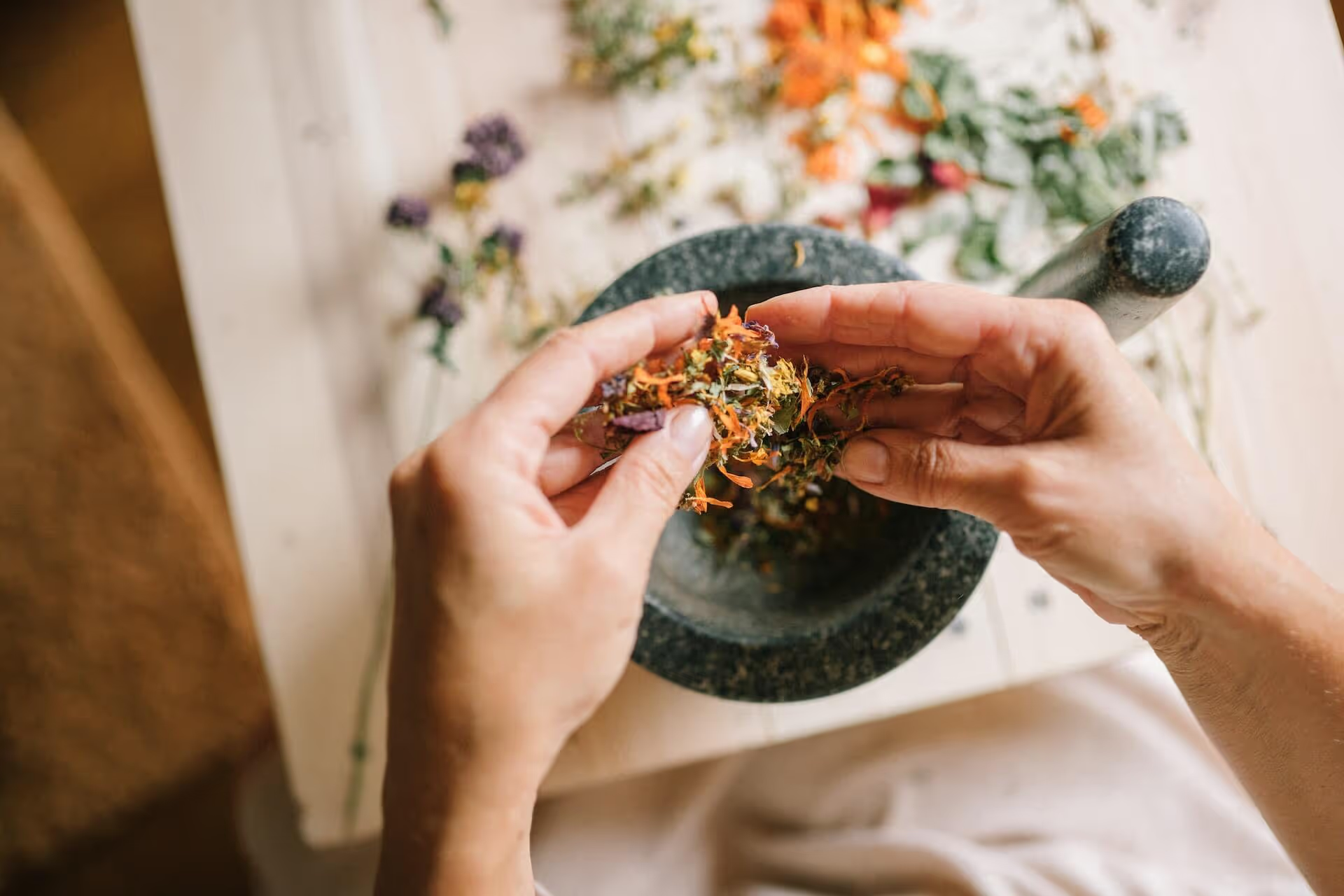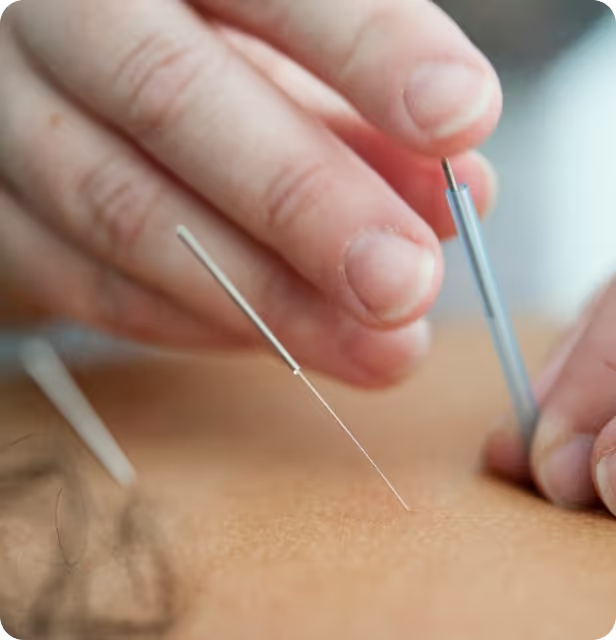If you live with chronic pain, you know it’s more than a physical sensation. It’s a constant negotiation with your own body, a drain on your energy, and a heavy weight on your spirit. You’ve likely tried countless approaches, from medications to physical therapy, yet the pain persists, sometimes better, sometimes worse, always unpredictable. It can feel like you’re fighting a losing battle, especially when modern medicine can’t seem to find a clear cause.
What if the path to relief wasn't about finding a new, cutting-edge cure, but about rediscovering an ancient, timeless wisdom? The Huangdi Neijing (The Yellow Emperor's Inner Canon), a foundational text of Traditional Chinese Medicine (TCM) written over 2,000 years ago, offers a profound perspective. It suggests that the secret to a long, healthy life isn't a magic pill, but a way of living. For those of us navigating the stress and burnout of the 21st century, its lessons on finding balance are more relevant than ever and provide a powerful roadmap for pain management.
Finding Your Rhythm: Syncing with Nature to Ease Your Pain
"The people of high antiquity... their eating and drinking had measure, their rising and resting had regularity. They did not tax themselves with meaningless work. Thus, they were able to unite form and spirit and live out their hundred years."
This passage highlights the first and most crucial principle of holistic health: living in harmony with the natural rhythms of the world, or "following the Yin and Yang." In modern terms, this is about respecting your body's internal clock.
Yin represents the quiet, dark, restorative energy of night. Yang represents the bright, active, outward energy of day. The ancients understood that our health depends on the smooth transition between these two states. When we disrupt this rhythm—by scrolling on our phones late into the night, working irregular hours, or forcing our bodies into activity when they crave rest—we create an internal state of chaos. This disruption can lead to inflammation, hormonal imbalance, and heightened pain sensitivity.
Practical Tip: The single most powerful change you can make is to establish a regular sleep schedule. Try to go to bed and wake up at roughly the same time each day, even on weekends. This simple act helps regulate your nervous system and allows your body to enter a deep, restorative state where it can repair tissues and calm inflammation, providing a foundation for chronic pain relief.
The "Just Enough" Principle: How Moderation Can Heal
"The people of today are not like this. They use wine as a beverage and take recklessness as normal... They do not know how to preserve their energy, they do not manage their spirit in a timely way, and they rush to please their hearts, going against the joy of life. Their rising and resting have no regularity. For this reason, they decay at half a hundred years."
Our modern culture often celebrates excess. We work too hard, push our bodies to the limit at the gym, and seek constant stimulation. The Neijing warns that this approach—"taking recklessness as normal"—is the fastest way to deplete our core vitality. For those with chronic pain, the "no pain, no gain" mentality can be especially damaging.
This ancient wisdom teaches the "just enough" principle:
- Mindful Eating and Drinking: "Eating and drinking had measure." This isn't about a restrictive diet, but about enjoying nourishing food in moderation and not using substances like alcohol as a primary source of hydration or stress relief.
- Balancing Work and Rest: "Not overexerting oneself recklessly." Pushing through pain and exhaustion to meet a deadline or finish a workout might feel productive in the moment, but it's like taking out a high-interest loan on your body's energy. The crash that follows—often in the form of a pain flare-up—is the inevitable repayment.
Practical Tip: Listen to your body. Instead of forcing yourself through a high-intensity workout when you're already fatigued, opt for gentle movement like walking, stretching, or tai chi. This helps keep your energy flowing without causing further depletion, making it a sustainable form of pain management.
Calm Your Mind, Calm Your Pain: The Power of Inner Peace
"Keep a tranquil and empty mind, and the true energy will follow. Guard the spirit within, and illness will have no place to arise."
This is perhaps the most profound insight for modern life: the mind-body connection is real and powerful. The text explains that when we are constantly agitated by worry, fear, or the need for stimulation ("rushing to please the heart"), we injure our spirit and scatter our energy.
In modern terms, this describes a state of chronic stress. When your mind is in a constant state of "fight or flight," it floods your body with stress hormones like cortisol. This keeps your muscles tense, heightens your perception of pain, and fuels systemic inflammation. Your body cannot heal when it thinks it's constantly under threat.
The solution offered by the ancients is to cultivate moments of "tranquility and emptiness." This doesn't mean you have to empty your mind completely, but rather to create space between your thoughts and give your nervous system a chance to downshift.
Practical Tip: Try a simple 2-minute breathing exercise. Sit comfortably, close your eyes, and place a hand on your belly. Inhale slowly through your nose for a count of four, feeling your belly expand. Exhale slowly through your mouth for a count of six. Repeat this 5-10 times. This simple act can switch your nervous system from "fight or flight" to "rest and digest," calming both your mind and your body.
A Modern User Journey: Sarah's Story
Meet Sarah, a 48-year-old graphic designer who has been living with fibromyalgia for over a decade. Her life is a perfect storm of modern pressures: tight deadlines, long hours staring at a screen, and the constant juggle of work and family. She often works late into the night, fueled by coffee, and grabs whatever food is quick and easy. Her pain is a constant, dull ache all over her body, punctuated by sharp, migrating pains in her neck and shoulders. She feels exhausted but can't seem to get restful sleep.
Frustrated, Sarah seeks out a TCM practitioner. The practitioner explains that from an ancient perspective, her lifestyle is "going against the joy of life." Her irregular schedule has disrupted her Yin-Yang rhythm, her high-stress job has caused her energy to stagnate, and her diet is not providing the deep nourishment her body needs.
Instead of a complex overhaul, the practitioner suggests one simple change: for the next two weeks, she is to turn off all screens by 10 p.m. and be in bed by 10:30 p.m. No exceptions. It's difficult at first, but after a week, Sarah notices something remarkable. She starts waking up feeling slightly less groggy. Her pain levels, while still present, feel less intense. This small victory empowers her to make another change: she starts taking a 15-minute walk outside during her lunch break instead of eating at her desk.
Over several months, by slowly incorporating these principles of regularity and moderation, Sarah finds that her flare-ups are less frequent and her energy levels are more stable. She hasn't found a "cure," but she has found a sustainable path to natural wellness and a way to live more peacefully within her own body.
The Path to Proactive Wellness
The wisdom of the Huangdi Neijing is not about blaming our modern lives, but about empowering us with the knowledge to navigate them more skillfully. It teaches that chronic pain is not a life sentence, but a signal from your body that something is out of balance. By learning to listen to these signals and making small, consistent adjustments—honoring your need for rest, moving your body gently, eating nourishing food, and calming your mind—you can begin to "treat the illness before it arises." You can become the sage of your own health.
If you're ready to stop fighting a battle and start cultivating balance, consider exploring how these timeless principles apply to your unique situation.

.avif)
.avif)




